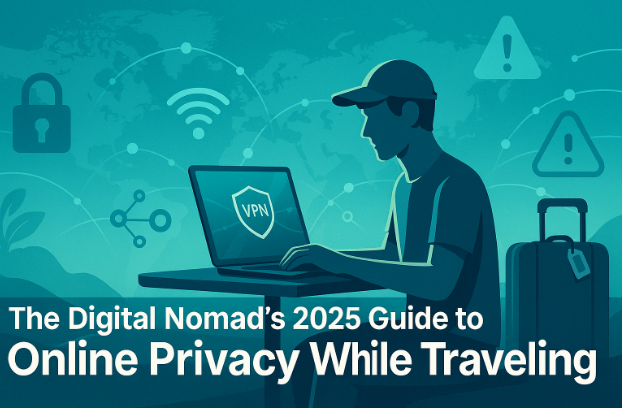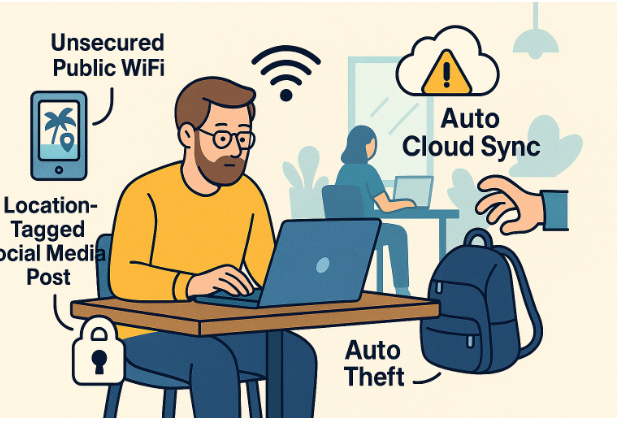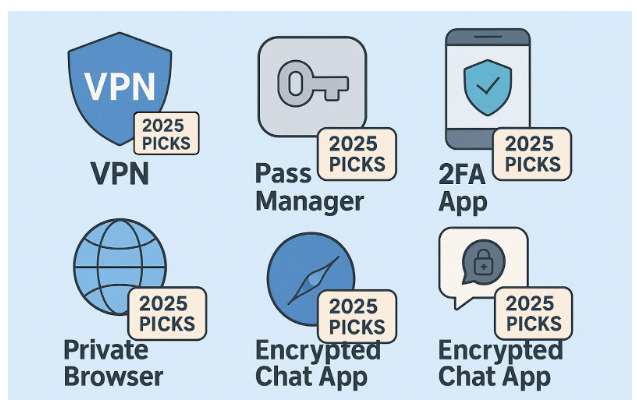BUSINESS
How to Grow Your Poetry Channel on Instagram

Instagram has evolved in recent years, and it is for the best! While people posted and followed silly trends on this platform, the same is now widely known to channel your creativity and even monetise your way out of it.
Only some people are guaranteed success on the ‘gram, no matter how hard you try. ‘Work smart, not hard’ is the motto to appeal to the algorithm to work in your favour. Alas, we have some exciting tips to help you showcase your talent carefree!
Why grow your poetry account?
Whatever you do, you would not want anything to go in vain, especially if it is artistic or creative. Sharing your work on Instagram and working on growing your poetry account is different.
- You can consider growing your poetry account only if:
- You want your poems to reach the right audience and be known for this art form
- You think your poem has the utmost potential to stand out
- You are planning to submit a manuscript to agents or outsiders.
- You want to continue this as a side hustle.
If your goal aligns with any of the above, you are good to go and make your art thrive amongst others.
How YOUR poetry account can dominate the ‘gram
Well, it takes time, but following the tips below can change your game and allow you to get results sooner than expected.
Amidst the numerous poetry accounts, you need to understand how to provide emotional value to your audience and stand out from the rest, and we will help you do so!
1. Post short excerpts
Low attention spans are a common issue today, but instead of ignoring them, use them to your advantage by posting short poem excerpts that are easily understandable and hit the right delivery spot while on the go.
These tactics will make your work more shareable, increasing your reach. Another way is to gain automatic Instagram likes.
2. Be consistent
Nothing is more important than posting regularly and being the first name that strikes anyone’s mind when they hear ‘poem.’ Setting that level of consistency is essential to being rewarded by both the audience and the algorithm, especially if you are starting.
It will be easier once you strategize and post for a month and check your insights regarding your followers’ active times so that your post appears on their feed next, making them engage with you more.
3. Use appropriate hashtags
Hashtags are a renowned way of attracting your niche audience to your content and, even more so, new readers. Use relevant hashtags rather than cluttering your caption with unnecessary ones, as this might be misunderstood as sharing poetry to receive attention.
For example, if your poem concerns forest, use nature-oriented hashtags and the necessary explore hashtags.
4. Tag your poems
Although it may be counted as attention seeking, do what is necessary to gather loyal and genuine followers via this crucial step. Start with tagging big accounts, as it might make no difference at first, but later, it might gather their audience and a new audience right to your content, helping you thrive. You might want to post up to thirty of those in your first comment to keep a nice and clean caption, although be cautious of not exceeding the limit, or you will fall into the ‘spam’ category.
5. Interact and develop a close bond.
Connecting with your niche people can help you develop valuable insights personally to thrive on the platform and develop close relationships in the long run. This gains the utmost trust from that audience towards you and attracts other brands or poetry accounts to engage and support you.
Additionally, ‘Writers Lift’ is a concept often occurring in the community when an account hits a milestone or during a festive season. Usually, once accounts reach millions, the creators tend to distance themselves from their audience, which mitigates the close relationship between them. Remember, they are the reason why you are thriving; give back the respect they deserve.
6. The right appeal
Poems are primarily associated with emotions, which can be stereotypical but often are right. However, other categories are available for poems, like politics, equal rights, etc., focusing on rational appeal rather than emotional appeal.
Poems about emotions like love, romance, life, etc., attract more interest and are best-selling for a reason. But remember, if you think your logical poems do not have a place, remember that people have the oddest likings. There is someone who will match your energy, so do not hesitate to post away!
7. Visually aesthetic
Aesthetics are the new norm when it comes to content creation. According to SocialMedia101, the first five seconds should catch your attention quickly. With this time, many have ensured their content looks as concise and aesthetically pleasing as possible to your eyes.
Using colour schemes can prove our instincts of being drawn to attractive images and bright colours. Using an interesting image as a cover for your poem can help attract readers but be sure to abide by copyright laws.
Even when it comes to your feed and strategizing posting times, plan your feed to look easy when anyone visits you for the first time. Aligning your feed aesthetically can help people access content quickly and know your pattern quickly. Ensure it is not shabby and maintains a consistent style, so no one gets bored or backtracks.
8. Incorporate using reels
Reels have significantly better reach than your usual posts, and many have already embraced this new adaptation.
You can utilise this tool to its fullest through your poems by adding a video background, some music, and your poetry as text on top. Add the necessary hashtags and keywords to skyrocket your engagement.
9. Lastly, do not give up!
Whatever happens, break a leg, and continue posting your art, as sharing poems can be a way of expressing your thoughts, but you have the power of touching hearts using just mere words.
Conclusion
Amidst all the chaos, revelling in the opportunity to share your art worldwide is essential. While you are at it, remember to enjoy it! Stay updated, and do not follow the ongoing trends; instead, be original and let your quality work reach heights. So, before you even try to market yourself, make sure you are worth marketing and help offering content that makes the world a better and more beautiful place.
BUSINESS
The most important questions small business owners should ask

You’re not alone. Another $4.99 million in new businesses have opened this year, too. No wonder you have a lot of questions.
After all, you have to look after all aspects of small business as an entrepreneur. Or you’ve simply been dumbstruck and not able to understand where to start from.
Don’t worry. A lot of people face such issues when they start their own business. Let me help you with some ideas. I’ll share a list of 4 questions that most entrepreneurs ask me. Maybe you will get some valuable leads from there-
#1: “I don’t have enough resources, but a lot on the plate to handle. Where to begin?”
I know getting along is tough. The main issue is that you don’t have the main men in supporting roles like your C-suite. Here’s the trick. You have to do strong networking.
Now, how will that help you?
Firstly, who should you network with? Preferably, people like attorneys, accountants, and fellow business owners. They can sync with your purpose. At the same time, they will give you valuable advice, opinions, and suggestions.
You may also consider tools like Secure Plus checks. The automated check software handles your financial part. At least, you can easily keep a tab on your costs without breaking a sweat.
#2: I lag in digital innovation. Without a digital presence, I would lose customers. What do I do?”
When the pandemic hit, 75% of the US businesses without a digital presence fell from their positions to ground 0. Cut to today! A lot of consumers expect that even small businesses like bakeries and repairs will have their full-fledged digital profiles.
There are a lot of tools that help you set up your website. But most companies spend the lion’s share of their marketing budget on digital campaigns like content marketing and SEO.
There is a range of free tools to get your work done. You may need just a few people on your team to build the whole digital ecosystem.
After your digital ecosystem is up and running, you can get traction from a lot of sources. You can expect to tap into a range of new territories too.
#3: How to pitch your business to gain access to more capital?
A lot of people mess up their finances, mixing them with their business. So, I refrain from doing that. Instead, approach a capitalist or an institution (preferably banks, as they offer low interest rates) for financial support.
You’re not alone. Another $4.99 million in new businesses have opened this year, too. No wonder you have a lot of questions.
After all, you have to look after all aspects of small business as an entrepreneur. Or you’ve simply been dumbstruck and not able to understand where to start from.
Don’t worry. A lot of people face such issues when they start their own business. Let me help you with some ideas. I’ll share a list of 4 questions that most entrepreneurs ask me. Maybe you will get some valuable leads from there-
#1: “I don’t have enough resources, but a lot on the plate to handle. Where to begin?”
I know getting along is tough. The main issue is that you don’t have the main men in supporting roles like your C-suite. Here’s the trick. You have to do strong networking.
Now, how will that help you?
Firstly, who should you network with? Preferably, people like attorneys, accountants, and fellow business owners. They can sync with your purpose. At the same time, they will give you valuable advice, opinions, and suggestions.
You may also consider tools like Secure Plus checks. The automated check software handles your financial part. At least, you can easily keep a tab on your costs without breaking a sweat.
#2: I lag in digital innovation. Without a digital presence, I would lose customers. What do I do?”
When the pandemic hit, 75% of the US businesses without a digital presence fell from their positions to ground 0. Cut to today! A lot of consumers expect that even small businesses like bakeries and repairs will have their full-fledged digital profiles.
There are a lot of tools that help you set up your website. But most companies spend the lion’s share of their marketing budget on digital campaigns like content marketing and SEO.
There is a range of free tools to get your work done. You may need just a few people on your team to build the whole digital ecosystem.
After your digital ecosystem is up and running, you can get traction from a lot of sources. You can expect to tap into a range of new territories too.
#3: How to pitch your business to gain access to more capital?
A lot of people mess up their finances, mixing them with their business. So, I refrain from doing that. Instead, approach a capitalist or an institution (preferably banks, as they offer low interest rates) for financial support.
You’re not alone. Another $4.99 million in new businesses have opened this year, too. No wonder you have a lot of questions.
After all, you have to look after all aspects of small business as an entrepreneur. Or you’ve simply been dumbstruck and not able to understand where to start from.
Don’t worry. A lot of people face such issues when they start their own business. Let me help you with some ideas. I’ll share a list of 4 questions that most entrepreneurs ask me. Maybe you will get some valuable leads from there-
#1: “I don’t have enough resources, but a lot on the plate to handle. Where to begin?”
I know getting along is tough. The main issue is that you don’t have the main men in supporting roles like your C-suite. Here’s the trick. You have to do strong networking.
Now, how will that help you?
Firstly, who should you network with? Preferably, people like attorneys, accountants, and fellow business owners. They can sync with your purpose. At the same time, they will give you valuable advice, opinions, and suggestions.
You may also consider tools like Secure Plus checks. The automated check software handles your financial part. At least, you can easily keep a tab on your costs without breaking a sweat.
#2: I lag in digital innovation. Without a digital presence, I would lose customers. What do I do?”
When the pandemic hit, 75% of the US businesses without a digital presence fell from their positions to ground 0. Cut to today! A lot of consumers expect that even small businesses like bakeries and repairs will have their full-fledged digital profiles.
There are a lot of tools that help you set up your website. But most companies spend the lion’s share of their marketing budget on digital campaigns like content marketing and SEO.
There is a range of free tools to get your work done. You may need just a few people on your team to build the whole digital ecosystem.
After your digital ecosystem is up and running, you can get traction from a lot of sources. You can expect to tap into a range of new territories too.
#3: How to pitch your business to gain access to more capital?
A lot of people mess up their finances, mixing them with their business. So, I refrain from doing that. Instead, approach a capitalist or an institution (preferably banks, as they offer low interest rates) for financial support.
You’re not alone. Another $4.99 million in new businesses have opened this year, too. No wonder you have a lot of questions.
After all, you have to look after all aspects of small business as an entrepreneur. Or you’ve simply been dumbstruck and not able to understand where to start from.
Don’t worry. A lot of people face such issues when they start their own business. Let me help you with some ideas. I’ll share a list of 4 questions that most entrepreneurs ask me. Maybe you will get some valuable leads from there-
#1: “I don’t have enough resources, but a lot on the plate to handle. Where to begin?”
I know getting along is tough. The main issue is that you don’t have the main men in supporting roles like your C-suite. Here’s the trick. You have to do strong networking.
Now, how will that help you?
Firstly, who should you network with? Preferably, people like attorneys, accountants, and fellow business owners. They can sync with your purpose. At the same time, they will give you valuable advice, opinions, and suggestions.
You may also consider tools like Secure Plus checks. The automated check software handles your financial part. At least, you can easily keep a tab on your costs without breaking a sweat.
#2: I lag in digital innovation. Without a digital presence, I would lose customers. What do I do?”
When the pandemic hit, 75% of the US businesses without a digital presence fell from their positions to ground 0. Cut to today! A lot of consumers expect that even small businesses like bakeries and repairs will have their full-fledged digital profiles.
There are a lot of tools that help you set up your website. But most companies spend the lion’s share of their marketing budget on digital campaigns like content marketing and SEO.
There is a range of free tools to get your work done. You may need just a few people on your team to build the whole digital ecosystem.
After your digital ecosystem is up and running, you can get traction from a lot of sources. You can expect to tap into a range of new territories too.
#3: How to pitch your business to gain access to more capital?
A lot of people mess up their finances, mixing them with their business. So, I refrain from doing that. Instead, approach a capitalist or an institution (preferably banks, as they offer low interest rates) for financial support.
You’re not alone. Another $4.99 million in new businesses have opened this year, too. No wonder you have a lot of questions.
After all, you have to look after all aspects of small business as an entrepreneur. Or you’ve simply been dumbstruck and not able to understand where to start from.
Don’t worry. A lot of people face such issues when they start their own business. Let me help you with some ideas. I’ll share a list of 4 questions that most entrepreneurs ask me. Maybe you will get some valuable leads from there-
#1: “I don’t have enough resources, but a lot on the plate to handle. Where to begin?”
I know getting along is tough. The main issue is that you don’t have the main men in supporting roles like your C-suite. Here’s the trick. You have to do strong networking.
Now, how will that help you?
Firstly, who should you network with? Preferably, people like attorneys, accountants, and fellow business owners. They can sync with your purpose. At the same time, they will give you valuable advice, opinions, and suggestions.
You may also consider tools like Secure Plus checks. The automated check software handles your financial part. At least, you can easily keep a tab on your costs without breaking a sweat.
#2: I lag in digital innovation. Without a digital presence, I would lose customers. What do I do?”
When the pandemic hit, 75% of the US businesses without a digital presence fell from their positions to ground 0. Cut to today! A lot of consumers expect that even small businesses like bakeries and repairs will have their full-fledged digital profiles.
There are a lot of tools that help you set up your website. But most companies spend the lion’s share of their marketing budget on digital campaigns like content marketing and SEO.
There is a range of free tools to get your work done. You may need just a few people on your team to build the whole digital ecosystem.
After your digital ecosystem is up and running, you can get traction from a lot of sources. You can expect to tap into a range of new territories too.
#3: How to pitch your business to gain access to more capital?
A lot of people mess up their finances, mixing them with their business. So, I refrain from doing that. Instead, approach a capitalist or an institution (preferably banks, as they offer low interest rates) for financial support.
Meanwhile, the pitch you are preparing is most crucial. Always try to reflect the potential of your business verticals. Reflect the objectives of the upcoming 5 years. At the same time, state your business figures. If your numbers are low, you must flaunt a clear plan to improve revenues.
Before you move with your business, you need to get some things straight. Firstly, you have to create your business checking account. In the meantime, you can apply for small business credit cards.
That’s the most lucrative way to fund the business verticals. However, it is better not to use your credit sources, like your own credit card or your loan, for your business needs.
If you mix your finances with those of your business, the banks might become confused. It would be difficult to get a clear picture of the company’s finances.
#4 What do we do to overcome the effect of inflation?
It depends mainly on the business. If you have an inventory, then your inventory management should be top-notch. Don’t spend more than you have. Also, ensure that you have a good grip on your cash flow.
During heavy inflation, your expenses may easily surpass your earnings. So, you must handle your front-end operations properly. Most importantly, you should hire a social media expert to promote your brand and scale up your business.
BUSINESS
The Digital Nomad’s 2025 Guide to Online Privacy While Traveling

You’re sipping espresso in a Lisbon café, editing your latest client project. The Wi-Fi is free. So is the hacker watching your every move.
Digital nomads are more connected than ever — and more exposed. From accidental overshares on Instagram to sketchy hotel internet, every country you visit brings a new set of privacy pitfalls.
In some cases, your digital trail can even be weaponized against you through tactics like doxxing — where personal details are leaked or used maliciously online.
This isn’t about fear — it’s about freedom. In this guide, you’ll discover how to secure your data, devices, and digital identity, so you can roam the world with peace of mind in 2025.
Why Online Privacy Matters More Than Ever for Digital Nomads
Life on the road is exhilarating — but also unpredictable. As digital nomads rely on remote access to sensitive files, finances, and communication tools, their personal data is increasingly vulnerable.
Whether you’re hopping between Airbnb stays, working in shared co-working spaces, or broadcasting your location on social media, your digital footprint becomes a roadmap for malicious actors. In 2025, with cyberattacks and personal data exposure on the rise, privacy isn’t a luxury — it’s a necessity.

8 Real-World Privacy Risks Nomads Face on the Road
1. Public Wi-Fi Networks & Data Interception
Open Wi-Fi at airports, cafés, and co-working spaces is notoriously unsafe. Hackers can easily intercept unencrypted data — including passwords, emails, and credit card details — through man-in-the-middle attacks.
2. Oversharing Locations on Social Media
Instagram stories, Twitter check-ins, and Facebook updates can inadvertently reveal your exact location and routine, making it easier for bad actors to track your movements or impersonate you online.
💡 Pro Tip: Delay your posts by 24 hours and remove metadata like geotags.
3. Device Theft in Hostels or Co-Working Spaces
It only takes a moment of distraction for someone to grab your laptop or phone. Without strong locks or biometric access, a thief could gain access to everything from work files to personal photos.
4. Unsecured Cloud Sync & Auto Backups
Many travelers keep cloud syncing on by default. But syncing on an unsecured network can expose sensitive files — especially if your device is set to auto-connect or auto-upload.
🔗 Related: What is Doxxing and How to Protect Yourself — understanding how personal data can be used against you is key to proactive defense.
5. SIM Swap & Phone Number Hijacking
SIM swap fraud can lock you out of your phone, bank, and 2FA-protected accounts. Travelers who use temporary or virtual numbers may be especially vulnerable.
6. Border Searches and Device Confiscation
Certain countries allow border agents to access your devices without a warrant. Without encryption or travel-specific device precautions, your data could be copied or detained.
7. Shoulder Surfing in Public Spaces
Whether you’re booking a flight or logging into PayPal, it’s surprisingly easy for someone nearby to observe or film your screen.
8. Malicious QR Codes and Travel Scams
From free Wi-Fi access signs to fake tour offers, QR code phishing has become a growing scam targeting international travelers.

Essential Privacy Tools Every Nomad Should Use in 2025
In the age of remote work, using the right privacy tools is the first line of defense.
Virtual Private Networks (VPNs)
A quality VPN like X-VPN encrypts your internet traffic, masking your IP and shielding you from network-based attacks.
Password Managers
Tools like 1Password or Bitwarden store your credentials securely and can generate ultra-strong passwords — far better than “Lisbon2025!”
2FA (Two-Factor Authentication)
Wherever possible, enable two-factor authentication. Use an authenticator app over SMS for added security, especially abroad.
Encrypted Messaging Apps
Use apps like Signal or Telegram for business and personal communication — especially when dealing with clients or sensitive files.
Private Browsers & Extensions
Browsers like Brave or Firefox with privacy extensions block trackers and fingerprinting scripts that follow you around the web.
Top Privacy Habits for Remote Workers Abroad
1. Secure Devices Before Traveling
- Turn on full-disk encryption
- Enable remote wipe for laptops and phones
- Disable auto-connect to open Wi-Fi networks
2. Review Social App Permissions
- Apps often track more than you think. Turn off location access where unnecessary and review privacy settings weekly.
3. Delay Posting & Remove Metadata
- Use tools like ExifCleaner to strip photo metadata before posting.
- Wait until you leave a location before sharing details publicly.
4. Use Burner Emails & Travel Phone Numbers
- For public Wi-Fi logins or signups, use disposable email addresses.
- Consider a separate SIM or eSIM for travel-related accounts.
Location-Specific Tips: How Privacy Laws Differ Around the World
Not all countries treat your data the same way. As a digital nomad, it’s worth knowing the regulatory landscape:
🇪🇺 Europe (GDPR Stronghold)
The General Data Protection Regulation (GDPR) provides strong protections — but only for EU citizens. Tourists may not be covered in the same way.
🇹🇭 Thailand / 🇮🇩 Indonesia
These countries have newer data laws but limited enforcement. Local internet cafés and SIM vendors may store ID info with little oversight.
🇺🇸 United States
Strong consumer rights in some states (like California), but little federal oversight. Law enforcement has broad access in some cases.
Final Thoughts: Staying Safe and Free in the Digital World
Living as a digital nomad in 2025 is an incredible opportunity — one that comes with great responsibility over your digital presence. With cyber threats growing and personal data becoming more valuable than ever, staying proactive about your privacy isn’t just smart — it’s essential.
Whether you’re working from a mountain town in Colombia or a co-working space in Prague, taking a few extra steps to secure your devices and protect your online identity can mean the difference between a smooth journey and a digital disaster.
Travel boldly, live freely — and always guard your digital trail.
BUSINESS
Know Your Rights: A Citizen’s Guide to Legal Protections

Introduction
Understanding your constitutional rights during interactions with law enforcement is essential for every citizen. This guide provides an overview of key legal protections guaranteed by the U.S. Constitution and relevant case law. While this information serves as a general educational resource, it is not a substitute for personalized legal advice from a qualified attorney.
The Fourth Amendment: Protection Against Unreasonable Searches and Seizures
The Fourth Amendment protects citizens against unreasonable searches and seizures by government officials, including police officers. This means:
- Warrant Requirement: In most cases, police need a warrant to search your home, vehicle, or personal belongings.
- Probable Cause: For a warrant to be issued, officers must demonstrate probable cause that evidence of a crime will be found.
- Exceptions: Several exceptions exist, including:
- Consent searches
- Plain view doctrine
- Searches incident to a lawful arrest
- Automobile exception (with probable cause)
- Exigent circumstances (emergencies)
The Fifth Amendment: Protection Against Self-Incrimination
The Fifth Amendment includes several important protections, most notably the right against self-incrimination:
- Right to Remain Silent: You cannot be compelled to provide testimony that might incriminate yourself.
- Miranda Rights: If you are in custody and being interrogated, officers must inform you of your rights to:
- Remain silent
- Be informed that anything you say can be used against you
- Have an attorney present during questioning
- Have an attorney appointed if you cannot afford one
The Sixth Amendment: Right to Counsel
The Sixth Amendment guarantees the right to legal representation:
- Right to an Attorney: You have the right to be represented by an attorney in all criminal proceedings.
- Public Defenders: If you cannot afford an attorney, one will be appointed to represent you.
- When the Right Attaches: This right begins at critical stages of prosecution, starting with formal charges.
During Police Encounters: Know Your Rights
Traffic Stops
- Remain calm and keep your hands visible.
- You must provide your license, registration, and proof of insurance when requested.
- You have the right to remain silent beyond providing basic identifying information.
- You may refuse consent to search your vehicle, but officers may search if they have probable cause.
- You are not required to answer questions about where you’re going or where you’ve been.
Street Encounters
- Ask if you are free to leave. If yes, you may calmly walk away.
- If detained, you have the right to know why you are being detained.
- You do not have to consent to a search of your person or belongings, though officers may conduct a limited pat-down for weapons if they have reasonable suspicion.
- Remaining silent cannot be used as evidence of guilt.
Home Encounters
- You do not have to open your door for police unless they have a warrant.
- You may ask to see the warrant before allowing entry.
- If officers have a valid search warrant, you should not interfere with their search, but you can observe and take notes.
- Without a warrant, you can deny entry (with some exceptions for emergency situations).
How to Exercise Your Rights
When Interacting with Police
- Stay calm and be respectful. Hostility can escalate situations unnecessarily.
- Clearly state that you are exercising your rights. For example: “I do not consent to a search” or “I am exercising my right to remain silent.”
- Ask if you are free to leave. If not, ask why you are being detained.
- Request an attorney immediately if arrested. Say clearly: “I want to speak with an attorney.”
- Do not resist arrest, even if you believe the arrest is unlawful. Legal challenges should be made in court, not on the street.
Documenting the Encounter
- Mental notes: Remember officer names, badge numbers, patrol car numbers.
- Witnesses: Note if there are witnesses to the interaction.
- Written record: As soon as possible, write down everything you remember.
- Medical attention: Seek medical attention immediately if injured and document all injuries.
When Professional Legal Help Is Necessary
While understanding your rights is crucial, navigating the legal system requires professional expertise in many situations:
- If you’ve been arrested or charged with a crime
- If your rights have been violated
- If you’re unsure about the legality of police actions
- Before making any statements to police in a criminal investigation
Finding the Right Legal Representation
- Criminal defense specialists have specific expertise in protecting citizens’ rights during criminal proceedings.
- Legal aid organizations can provide representation if you cannot afford an attorney.
- Bar association referrals can help you find qualified attorneys in your area.
- Public defenders are trained specifically in criminal defense.
Important Disclaimer
This guide provides general information about legal principles and is not legal advice tailored to specific situations. Laws vary by state and locality, and legal precedents evolve over time. Always consult with a qualified attorney for advice about your specific circumstances.
Resources for Further Information
- American Civil Liberties Union (ACLU): www.aclu.org
- National Legal Aid & Defender Association: www.nlada.org
- American Bar Association: www.americanbar.org
- State and local bar associations
- Legal aid organizations in your community
Conclusion
Knowledge of your constitutional rights is an essential component of citizenship, but it is only the first step. When facing serious legal situations, professional legal counsel is invaluable. Criminal law specialists are trained to navigate the complexities of the legal system and provide the personalized guidance necessary to protect your rights and interests.
Remember: The best protection is a combination of knowledge, calm assertion of your rights, and appropriate professional legal representation when needed.
-

 GENERAL1 year ago
GENERAL1 year agoDiscovering the Artistic Brilliance of Derpixon: A Deep Dive into their Animation and Illustration
-

 Posts1 year ago
Posts1 year agoSiegel, Cooper & Co.
-

 Lifestyle1 year ago
Lifestyle1 year agoPurenudism.com: Unveiling the Beauty of Naturist Lifestyle
-

 Lifestyle1 year ago
Lifestyle1 year agoBaddieHub: Unleashing Confidence and Style in the Ultimate Gathering Spot for the Baddie Lifestyle
-

 HEALTH1 year ago
HEALTH1 year agoTransformative Health Solutions: Unveiling the Breakthroughs of 10x Health
-

 Entertainment1 year ago
Entertainment1 year agoGeekzilla Podcast: Navigating the World of Pop Culture, Gaming, and Tech
-

 Entertainment1 year ago
Entertainment1 year agoKhatrimaza Unveiled: Exploring Cinematic Marvels and Entertainment Extravaganza
-

 BUSINESS1 year ago
BUSINESS1 year agoUnlocking the Secrets to Jacqueline Tortorice Remarkable Career and Accomplishments
